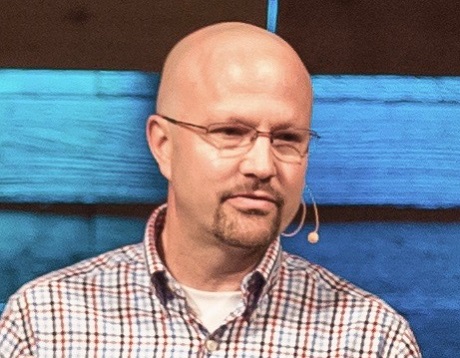- Calls to this hotline are currently being directed to Within Health, Fay or Eating Disorder Solutions
- Representatives are standing by 24/7 to help answer your questions
- All calls are confidential and HIPAA compliant
- There is no obligation or cost to call
- Eating Disorder Hope does not receive any commissions or fees dependent upon which provider you select
- Additional treatment providers are located on our directory or samhsa.gov
Celebrating Thanksgiving without Disordered Eating

I’ve been thinking a lot about posture lately. Maybe that comes with age and a sore back. Regardless, I’ve found the topic fascinating. Amy Cuddy, a professor and researcher at Harvard Business School, got me thinking about the subject in her popular TED Talk, “Your body posture may shape who you are.” [1]
I won’t give away the details here, but it is well worth your time to listen to it. In short, she has discovered that our body language not only reflects our emotions but shapes it. This got me thinking about our emotional posture.
I define emotional posture to mean something like an attitude or mindset. If I have an open, hopeful, and curious stance, then I’m more at peace and grounded as I encounter the world around me. If I have a closed, suspicious, and cynical posture, I’m more apt to experience the world as against me and see myself as a failure.
Many clients I know anticipate struggling with Thanksgiving and disordered eating behaviors during the holiday season. With Thanksgiving just around the corner, let’s consider how improving your emotional posture can decrease your anxiety and increase opportunities to celebrate.
Accept the Struggle with Thanksgiving and Disordered Eating
 One key to experiencing peace during the holidays is recognizing that it won’t be entirely peaceful. There will likely be many triggers over the long holiday weekend.
One key to experiencing peace during the holidays is recognizing that it won’t be entirely peaceful. There will likely be many triggers over the long holiday weekend.
This reminds me of something pastor Tim Keller has said. He notes that many people he talks with are suffering, which is stressful enough.
Yet their suffering is multiplied because they don’t believe they should be suffering at all. In other words, acceptance that struggle is part of life will strengthen you to endure it.
Be Curious, Rather Than Judgmental
When you feel triggered or engage in an eating disorder behavior, it’s common to slip into self-hatred or all-or-nothing thinking. This only complicates the issues and often results in more unhelpful choices.
Instead of self-condemnation, work on developing a posture of curiosity regarding your triggers and choices. Work on developing the ability to step outside of your present moment and observe your surroundings and your responses.
Embrace a Recovery Mindset
According to Carol Dweck, Ph.D., we can have two types of mindsets. A fixed mindset is one that dreads failure and assumes the worst, while a growth mindset looks for opportunities to learn. Recovery requires a growth mindset. Here are some examples of what recovery with this mindset might look like:
- Janelle Lenhoff, a licensed clinical psychologist in Greenville, South Carolina, suggests, “Treat the thanksgiving meal like a normal meal. Do not skip meals/snacks throughout the day in anticipation of the Thanksgiving meal, even if those around you are doing so. Have all the meals and snacks as intended.”
- Dr. Christine Marston, who practices in Doylestown, Pennsylvania, says that “Thanksgiving is the perfect place to practice intuitive eating. There are so many delicious options, more than you could ever eat. [Ask yourself] what are you really hungry for in this moment?”
Develop a Grateful Posture Over Thanksgiving and Disordered Eating
 This final tip may sound like a no-brainer. The truth is, gratitude is great for your brain. [2]
This final tip may sound like a no-brainer. The truth is, gratitude is great for your brain. [2]
If you are concerned about being anxious and worried over the holiday season, begin expressing gratitude today.
Even better, begin a gratitude journal. Your brain can only focus on so many things at once. The more you fill it with gratitude, the less room there will be for fear and stress.
REFERENCES:
[1] Cuddy, A. (2012, June). Your body language may shape who you are. Retrieved November 17, 2019, from https://www.ted.com/talks/amy_cuddy_your_body_language_shapes_who_you_are. [2] Korb, A. (2012, November 20). The Grateful Brain. Retrieved November 17, 2019, from https://www.psychologytoday.com/us/blog/prefrontal-nudity/201211/the-grateful-brain.About the Author:
 Travis Stewart, LPC has been mentoring others since 1992 and became a Licensed Professional Counselor in 2005. His counseling approach is relational and creative, helping people understand their story while also building hope for the future. Travis has experience with a wide variety of issues which might lead people to seek out professional counseling help.
Travis Stewart, LPC has been mentoring others since 1992 and became a Licensed Professional Counselor in 2005. His counseling approach is relational and creative, helping people understand their story while also building hope for the future. Travis has experience with a wide variety of issues which might lead people to seek out professional counseling help.
This includes special interest in helping those with compulsive and addictive behaviors such as internet and screen addiction, eating disorders, anxiety, and perfectionism. Specifically, he has worked with eating disorders since 2003 and has learned from many of the field’s leading experts. He has worked with hundreds of individuals facing life-threatening eating disorders in all levels of treatment. His website is wtravisstewart.com
The opinions and views of our guest contributors are shared to provide a broad perspective on eating disorders. These are not necessarily the views of Eating Disorder Hope, but an effort to offer a discussion of various issues by different concerned individuals.
We at Eating Disorder Hope understand that eating disorders result from a combination of environmental and genetic factors. If you or a loved one are suffering from an eating disorder, please know that there is hope for you, and seek immediate professional help.
Published November 25, 2019, on EatingDisorderHope.com
Reviewed & Approved on Novembe 25, 2019, by Jacquelyn Ekern MS, LPC

The EatingDisorderHope.com editorial team comprises experienced writers, editors, and medical reviewers specializing in eating disorders, treatment, and mental and behavioral health.

